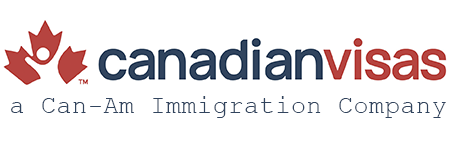Feb 6, 2014 | Family Immigration, Immigration, In the News
If you have not yet submitted your application for your Parent and Grandparent sponsorship, you will have to wait until next year. As of February 3, 2014, 5000 applications have been received.
Citizenship & Immigration Canada reopened the Parent and Grandparent Sponsorship Program on January 2, 2014. A maximum of 5000 applications is the limit; a way to reduce the backlog and improving processing times to reunite families faster. There are applicants who are still in process, and have been for over 7 years.
Those who managed to qualify to submit a complete application in the first couple of weeks will be considered eligible to sponsor and their application will proceed to the visa office for processing. Applications are considered to be ‘complete’ if all required documentation is provided, and all requirements of a sponsor are met.
Check to see if you met the requirements to sponsor your parent or grandparent to Canada
- You must be a Canadian citizen or permanent resident
- You must not be collecting social assistance, welfare (except disability),
- You must not be in default of a previous sponsorship,
- You must not be an undischarged bankrupt,
- You must meet the minimum necessary income requirement for the last three (3) taxation years,
- You must purchase private health insurance for your parent or grandparent.
The new Sponsorship of Parents and Grandparents requires the Sponsor to meet the minimum necessary income for three (3) years. You must have submitted your Notice of Assessment or Option C Printouts for the last most recent three (3) taxation years. For example: 2010, 2011, and 2012. There is no exception to this requirement and if any other documentation was provided, it is likely to not be considered. In this case, the application is deemed incomplete and will most likely be returned to the Sponsor.
Super Visa for Parents and Grandparents of Canadian citizens or Permanent Residents
Children or grandchildren of Canadian citizens and Permanent Residents may apply for a Super Visa. Similar to a Visitor (tourist) Visa, a Super Visa allows for the applicant to stay in Canada for up to two (2) years at a time. While a normal Visitor Visa allows for a maximum of six (6) months, the Super Visa provides a longer stay.
Canadian citizens and Permanent Residents must meet the minimum necessary income. However, they must only meet this requirement for one (1) year.
Oct 10, 2013 | Becoming a Sponsor, Family Immigration
| Size of Family Unit |
Minimum Income
2012 |
Minimum Income
2011 |
Minimum Income
2010 |
| 2 persons |
$36,637 |
$35,976 |
$35,881 |
| 3 persons |
$45,040 |
$44,229 |
$44,113 |
| 4 persons |
$54,685 |
$53,699 |
$53,557 |
| 5 persons |
$62,023 |
$60,905 |
$60,745 |
| 6 persons |
$69,950 |
$68,689 |
$68,509 |
| 7 persons |
$77,879 |
$76,475 |
$76,275 |
| More than 7 persons, for each additional person, add |
$7,929 |
$7,786 |
$ 7,766 |
The Minimun Necessary Income requirement, which you must meet for each of the three years preceding the date of your application, is equal to the Low Income Cut-Offs (LICO) plus 30%.

Aug 30, 2013 | Family Immigration, New Immigration Programs

A new program to sponsor your parents and grandparents to Canada will open on January 2, 2014. You will now have the opportunity to sponsor your parents and/or grandparents to Canada.
On January 2nd, 2014, the new Parent and Grandparent (PGP) program will reopen and begin accepting new applications. Thousands of people are now running around in an attempt to prepare their applications for submission with the first few days of the program opening. With a maximum allowance of 5,000 applicants for the entire year, applications will be processed on a first-come/first-serve basis. You may think that 2014 is a long way away but our immigration offices and others around the world are already preparing applications for many clients to be submitted on the day the program opens (January 2, 2014). It is therefore crucial that you meet the new requirements of the Parent and Grandparent program, which have been updated since the program was placed on hold on November 4th 2011.
New Parent and Grandparent Sponsorship Requirements:
- You must be a permanent resident or citizen of Canada, AND
- You must commit to be financially responsible for 20 years from the date your parent or grandparent became a permanent resident, AND
- you must meet the minimum income requirement for a period of three (3) years prior to the date your application is submitted and continue to meet the income requirement until the day of approval, which could take as long as 2 years.
The minimum income requirement will depend on how many people are in your household and how many people you are sponsoring. For example, if you have 4 people in your household and you will be sponsoring your mother and father, the total number is 6 people. Citizenship & Immigration Canada has not yet published the minimum income chart and for this reason we cannot provide you with the actual dollar amount you must meet. However, we do know that the minimum income requirement will be increased by as little as 30% but could increase by up to 50% from what they are currently.
With these strict requirements, it is crucial that you speak with an experienced immigration consultant early in order to begin gathering all of the necessary documentation. Keeping in mind that preparing an immigration application could take many weeks, and often several months, we highly recommend you begin immediately to avoid disappointment.
With the New Year fast approaching, it would be wise to start your preparations immediately if you hope to have any chance of having your application submitted on time and with all of the necessary documentation. Our office can provide you with all of the information you need and a comprehensive list of documents to get you started. Our immigration consultants will guide you throughout the process of sponsoring your parents or grandparents until the approval of your parent(s) or grandparent(s) permanent residence. Can-Am Immigration is operated by a highly trained and knowledgeable staff, headed by licensed and regulated immigration consultants.
We are open from 9am to 10pm EST, Monday through Friday and our consultants are available to offer advice by phone at 1-888-808-7338. You may also contact us outside of those hours by sending an email to inquiries@theimmigrationteam.com.

Nov 8, 2012 | Family Immigration, Immigration, In the News, New Laws, Permanent Residency
New regulations were put into action on October 25, 2012 in an attempt to stop marriage fraud in Canada. These new laws will require sponsored spouses to remain in a relationship with their sponsors for a period of at least two years. Marriage fraud has become a large problem in Canada. According to Citizenship, Immigration and Multiculturalism Minister Jason Kenney, “There are countless cases of marriage fraud across the country.” Efforts to prevent people from marrying for the sole purpose of obtaining permanent resident status have been ongoing. These new regulations have been a long time coming as similar laws are already in place in many other countries.
Permanent residents who were sponsored within the last two years and who have no children with their current sponsor will now need to stay in the relationship for two years or risk losing their permanent resident status. There must be some evidence that the relationship is genuine and not simply a “marriage of convenience.” In some cases of marriage fraud, Canadian citizens are being victimized by their partners who enter into the relationship with the goal of obtaining citizenship and then leaving their partner. Other cases include the exchange of money in which Canadian citizens are accepting money to marry and sponsor non-Canadians into Canada. Canadians are now standing up against marriage fraud with groups such as Canadians Against Immigration Fraud (CAIF) and the Canadian Marriage Fraud Victims Society joining Minister Kenney and the CIC in their fight against marriage fraud in Canada. Canadian Marriage Fraud Victims Society founder, Palwinder Singh Gill, supports the new regulations, stating that “Canada’s generous family sponsorship program was being abused because many people were marrying only to get a permanent resident card and then leave their partners. With this rule, those abusing the system will think twice.”
Anyone who applies or has applied for permanent resident status whose application was received on or after October 25, who is in a relationship with their sponsor for less than two years, and who does not have children with their sponsor at the time of their application, will now be given conditional permanent residence. Conditional permanent residence differs from regular permanent residence only in that you must remain in a legitimate relationship with your sponsor for that period of time. Citizenship and Immigration Canada (CIC) believes that enforcing this two year condition will reduce the amount of marriage fraud in Canada. In the past, Canada was considered a “soft target” for those who wished to bypass Canada immigration laws in order to become permanent residents under the Spousal Sponsorship program. These new regulations will hopefully put an end to marriage fraud in Canada. Other measures to prevent marriage fraud in the past include a law which was put in place in March which prevents those who have been sponsored from sponsoring a new spouse for a minimum of five years. This means if you were sponsored by your spouse in the last five years and are now in a new relationship, you are not eligible to be a sponsor until you have been a permanent resident for at least five years. These regulations along with the requirements of the Spousal Sponsorship program, which puts the burden on the sponsors and their partners to prove their relationship is genuine, should greatly reduce marriage fraud in Canada.
Some exceptions to these laws have been put into place which will allow for certain situations to be assessed differently. In cases of abuse or neglect, a sponsored spouse will not be forced to stay with their sponsor for these two years. This also applies in cases where the abuse is coming from a third party who is not the sponsor and who does not live with the couple, such as family members of the sponsor. Applicants who are found to be in a relationship which is abusive will not lose their permanent resident status if they leave their sponsors before the two year conditional permanent residence requirement. Another exception to this rule would allow sponsored spouses to keep their status in the case of a sponsor’s death prior to the two year period.
We want to hear what you have to say on the issue of marriage fraud and these new regulations. Do you think these new laws will put an end to the long-standing problem of marriage fraud in Canada? Do you believe the CIC should take further measures to prevent marriage fraud? Let us know what you think by sharing your opinions here on our blog and/or share this post with your friends and family on facebook and twitter.
If you are a Canadian citizen or permanent resident who has sponsored and/or been sponsored by a spouse or partner and you are not sure how these new regulations may affect you, call our office to speak to an immigration consultant.

Mar 29, 2012 | Family Immigration, In the News, Permanent Residency, Processing Times
The government of Canada has decided to redesign the parent and grandparent sponsorship immigration program. With long processing times and an ever increasing backlog, Citizenship & Immigration Canada (CIC) is now consulting with stakeholders, including the public on how best to solve these issues.
On March 23, 2012, CIC Minister Jason Kenney announced that he will hold online consultations as well as multicity in-person meetings for public comment. “Our government is fully committed to helping families reunite,” said Minister Kenney. “The feedback provided by Canadians will guide our government in creating a new program in which future applications will be processed quickly and backlogs will not develop. It will also help ensure the program can operate on an efficient and sustainable basis.”
In November of 2011 CIC announced the Action Plan for Faster Family Reunification. As Phase 1 of this plan, CIC placed a temporary freeze on the parent and grandparent sponsorship program; however, they did increase the number of sponsored parents and grandparent they will approve by sixty (60) per cent to 25,000 for the 2012 immigration year. Also part of Phase 1 was the implementation of the Parent and Grandparent Super Visa, a visa that will allow permanent residents and Canadian citizens to sponsor their parents and/or grandparents to visit Canada for two (2) years at a time, valid for up to ten (10) years.
Family reunification is extremely important for Canada and therefore a revamp of the program is necessary. The current pause until 2014 may help to reduce the processing and wait time as well as help clear the backlog, but unless the demand for parent and grandparent sponsorship to Canada is managed, both the processing wait times and the backlog have the potential to quickly grow again to unmanageable numbers.
Different options are being considered to address a number of questions:
- Should we try to ease the economic impact of parents and grandparents by, for example, requiring sponsors to be financially responsible for their parents and grandparents over the Parent and Grandparent immigration programs lifetime, applying a fee, or requiring sponsors to have a higher income?
- Should we redefine the eligibility of family members who accompany parents and grandparents by, perhaps, focusing on parents rather than on the siblings of sponsors, or by applying a “balance of family test” in which parents and grandparents would be required to have from half to the majority of their children living permanently in Canada?
- Should we emphasize a commitment to Canada on the part of sponsors by, for example, making it mandatory to be a Canadian citizen (and not just a permanent resident) in order to apply?
- Should we focus on special needs or exceptional cases by, for example, requiring that the parent and grandparent be widowed or have other exceptional needs?
What is your opinion on the above questions? Do you have any recommendations for the Canadian government on how to better improve the parent and grandparent sponsorship program?
Nov 9, 2011 | Family Immigration, In the News, Why you need an immigration specialist
Canadian marriage fraud is on the rise. The Canada Border Services Agency currently has more than 30 criminal probes with relation to fraudulent marriages that took place during the past few years. Canada’s border agency brought up the possibility that organized crime syndicates may have a hand in facilitating these fraudulent marriages in order to achieve legal status in Canada.
Upon analysis by Citizen and Immigration officials, they noticed that there were too many dubious similarities among marriage sponsorships, which led to the conclusion that most of these marriages might be fraudulent in nature.
There are two types of fraudulent marriage:
- A Canadian sponsor with good intentions falls prey to a foreign national, who takes advantage of their union to gain permanent resident status in Canada, and the same can result to the offender being kicked out of Canada.
- Both individuals are aware and participate, of their own free will, in a phony marriage. This is what is considered by the government to be “organized crime”.
In order to gather enough evidence to support and successfully prosecute the offending parties, the Public Safety Ministry has conceded that they require investigations, which take up a lot of resources.
More than three-dozen investigations have been initiated in the last four years, out of which seven cases have been brought before the courts, resulting in convictions for three of these cases. As of the end of 2010, more than a dozen of these cases were still pending.
The result of all of this is that Canadian marriage immigration may become more difficult and restrictive, like it is in the USA. A move has been proposed where “conditional permanent residence” would be granted to foreigners who have been married to their Canadian sponsor for less than 2 years, just like in the US process. Upon arrival in Canada, they have to remain in that relationship for 2 more years, otherwise they risk losing their permanent residency status. For this reason you should contact our firm for help filing your Canadian marriage sponsorship application, to increase your chances of success!




 Useful Resources for Canada
Useful Resources for Canada
 Useful Resources for U.S.
Useful Resources for U.S.
 Our Local Immigration Services
Our Local Immigration Services